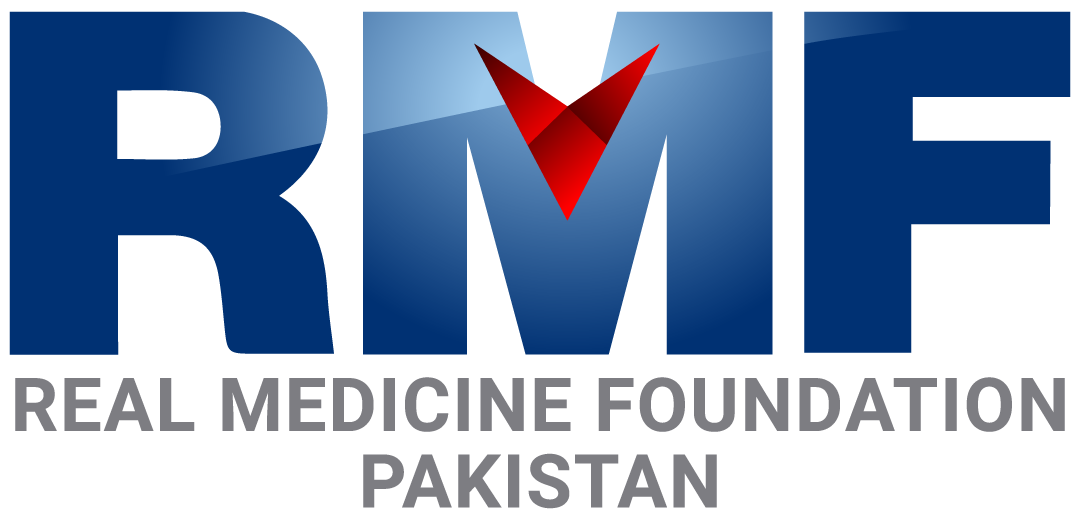- Home
- About Us
- Our Work
- Initiatives
- Disaster Relief
- Hospital and Clinic Projects & Support
- Education & School Support
- Refugee Support
- Healthcare Education & Outreach
- Healthcare Capacity Building & Health Systems Strengthening
- Mobile Clinic Outreach
- Economic Stability & Livelihood
- Community Support
- Psychological Trauma Support
- Health Research
- News & Updates
- Get Involved
RMF Pakistan - Project Reports & Publications

Documentary
Publications
- Salway S, Mumtaz Z, Bhatti A, Barnes A, Patterson P, Dawson J and Jhangri G (2022) Scaling up the ’24/7 BHU’ strategy to provide round-the-clock maternity care in Punjab, Pakistan: A theory-driven, co-produced implementation study. BMC Health Research Policy and Systems DOI:10.1186/s12961-022-00944-w
- Mumtaz Z, Jhangri G, Bhatti A, Ellison George TH (2022) Caste in Muslim Pakistan: a structural determinant of inequities in the uptake of maternal health services. Sexual and Reproductive Health Matters29(2) DOI:1080/26410397.2022.2035516
- Mumtaz Z, Bhatti A and Salway S (2019) Challenges to achieving appropriate and equitable access to Caesarean section: ethnographic insights from rural Pakistan. Journal of Biosocial Science DOI:1017/S0021932019000567
- Mumtaz Z, Sommer M and Bhatti A (2019) “How can we leave the traditions of our Baab Daada” socio-cultural structures and values driving menstrual hygiene management challenges in schools in Pakistan. Journal of Adolescence DOI: 10.1016/j.adolescence.2019.07.00
- Mumtaz Z, Ferguson A, Bhatti A and Salway S (2017). Learning from failure? Political expediency, evidence, and inaction in global maternal health practice. Social Science and Medicine DOI: 10.1016/j.socscimed.2017.05.032
- Mumtaz Z, Levay A, Jhangri G, Bhatti A (2015). Coverage of private sector community midwife services in rural Punjab, Pakistan: Development and demand. BMC Health Research Policy and Systems DOI: 10.1186/s12961-015-0038-3
- Mumtaz Z, Levay, A and Bhatti A (2015). Successful Community Midwives in Pakistan: An Asset based approach. PLOS One DOI: 10.1371/journal.pone.0135302
- Mumtaz Z, Levay A, Bhatti A and Salway S (2014) Good on paper: the gap between programme theory and real-world context in Pakistan’s Community Midwife programme. BJOG An International Journal of Obstetrics and Gynecology DOI: 1111/1471-0528.13112
- Mumtaz Z, Cutherell A, Bhatti A (2014). Saving mothers and newborns in communities: strengthening community midwives to provide high quality essential newborn and maternal care in Baluchistan, Pakistan in a financially sustainable manner. BMC Pregnancy and Childbirth DOI:1186/1471-2393-14-131
- Mumtaz Z, Salway S, Bhatti A, McIntyre L (2014). Addressing invisibility, inferiority, and powerlessness to achieve gains in maternal health for ultra-poor women. Lancet DOI: 10.1016/S0140-6736(13)61646-3
- Mumtaz Z, Levay A, Bhatti A (2014). Using Organizational Ethnography to reveal how gender and caste inequities impact program functioning in Pakistan: the case of the Community Midwife Program. International Journal of Qualitative Methods DOI: 10.1186/1742-4755-10-3.
- Mumtaz Z, Salway, S, Bhatti A, Shanner L, Zaman S and Laing, L (2013) Improving maternal health in Pakistan: towards a deeper understanding of the social determinants of poor women’s access to maternal health services American Journal of Public Health DOI: 2105/AJPH.2013.301377
- Mumtaz Z, Salway S, Nykiforuk C, Bhatti A, Ataullahjan A, Ayyalasomayajula B (2013). The role of social geography on Lady Health Workers’ mobility and effectiveness in Pakistan. Social Science and Medicine DOI: 10.1016/j.socscimed.2013.05.007
- Mumtaz Z, Levay A, Salway S, Bhatti A. (2013) Signaling, status and inequities in maternal healthcare use in Punjab, Pakistan. Social Science and MedicineDOI: 1016/j.socscimed.2013.06.013
- Mumtaz Z, O’Brien B, Bhatti A, Jhangri G (2012). Are community midwives addressing the inequities in access to skilled birth attendance in Punjab, Pakistan? Gender, class and social exclusion. BMC Health Services Research DOI: 10.1186/1472-6963-12-326
- Mumtaz Z, Salway S, Shanner L, Bhatti A, Laing L (2011). Maternal deaths in Pakistan: Intersection of gender, class and social exclusion. BMC International Health and Human Rights DOI: 10.1186/1472-698X-11-S2-S4
Conferences
- “Understanding and strengthening the 24/7 BHU initiative”, Sociological Studies Seminar Series 2023, University of Sheffield UK, October 25, 2023 Presentation Link
- “Period Inequity and COVID-19”, Virtual Conversation about MHM – COVID 19 Response” 2020 hosted by WatSan Cell KPK, UNICEF and IRC, Pakistan, June 17, 2020 Presentation Link
- “How can we leave the traditions of our Baab Daada” socio-cultural structures and values driving menstrual hygiene management challenges in schools in Pakistan. Poster presentation at Women Deliver 2019 Global Conference, Vancouver, Canada. June 3-6, 2019
- “A Path to an Equal World: Mainstreaming MHM in Health and Education in Pakistan”. Oral presentation at the South Asian Conference on Sanitation (SACOSAN), Islamabad, Pakistan. April 10-14, 2018 Presentation Link
- “How can we leave the norms of our father and forefathers?” – Exploring Pervasive Socio-cultural Understandings of Menstrual Hygiene Management Practices in Pakistan. Oral presentation at the South Asian Conference on Sanitation (SACOSAN), Islamabad, Pakistan. April 10-14, 2018 Presentation Link
- “To be heard: Generating evidence of Girls Menstrual Hygiene Management Information needs in Pakistan”. Poster presented at 5th Virtual conference on Menstrual Hygiene Management (MHM) for WASH- hosted by Unicef and Columbia University, Mailman School of Public Health October 25, 2016. Online Link

REAL MEDICINE FOUNDATION PAKISTAN
Initiatives
- Disaster Relief
- Hospital & Clinic Projects Support
- Education & School Support
- Refugee Support
- Malnutrition Eradication
- mHealth Programs
- Healthcare Education & Outreach
- Healthcare Capacity Building & Systems
- Economic Stability & Livelihood
- Flood Victims Healthcare Outreach
- Health Research
- HIV/AIDS Prevention & Treatment
- Medical Support
- Mobile Clinics
- Psychological Support
Designed & Developed by Socialoctors
